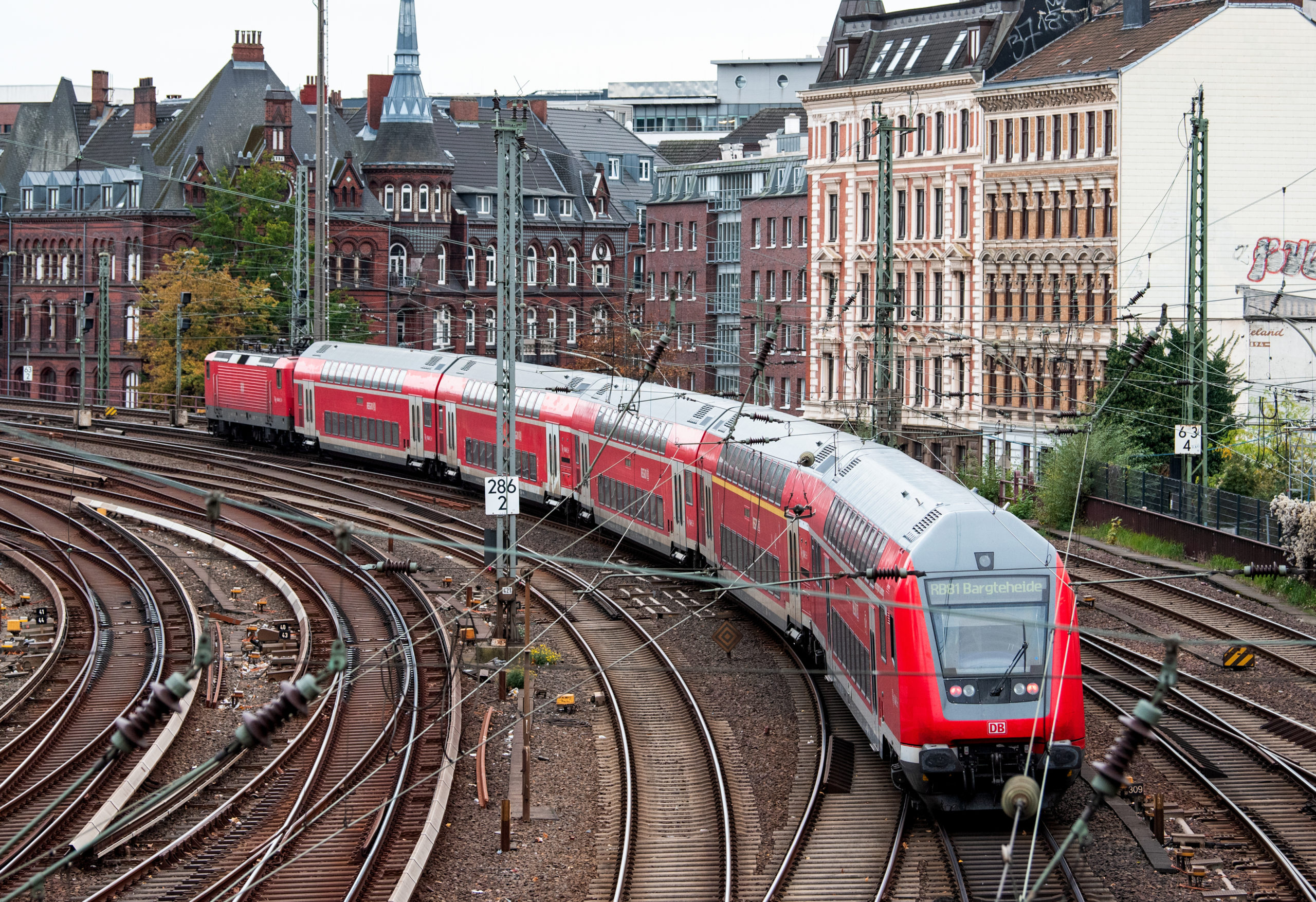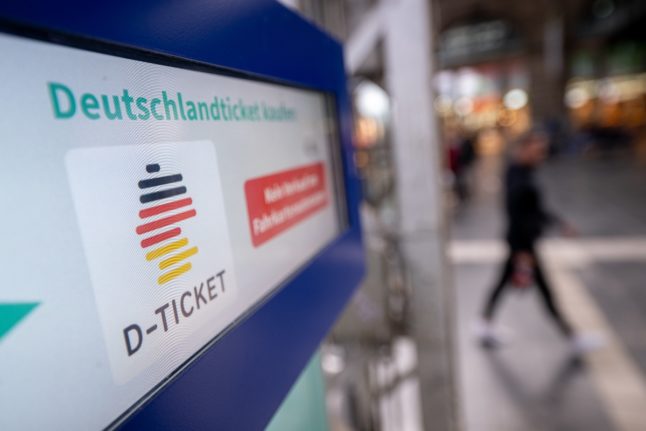What’s happening?
Germany introduced the Deutschlandticket in May, which allows people to use local trains, buses, trams and the underground all over the country for €49 per month.
It’s been popular so far: about 10 million people are using it plus statistics show that passenger numbers are increasing on local transport.
But despite this success, politicians have been arguing about the future of the €49 ticket.
On Thursday this week, transport ministers in the federal states threatened to axe the offer if the federal government did not pledge more money.
After the virtual meeting, the state ministers demanded an immediate funding pledge from the government until the end of 2025.
Without this commitment from Berlin, a “significant price increase” would be necessary as early as next year, according to a resolution passed unanimously by the ministers.
They added that the continuation of the Deutschlandticket from 2024 onwards is “seriously endangered”, urging for a solution to be found as soon as possible.
READ ALSO: Public transport use in Germany goes up thanks to the €49 ticket
Why is there an argument over funding?
Before the ticket was launched, the federal and state governments agreed that they would each pay €1.5 billion from 2023 to 2025. The aim is for the transport companies to be compensated for the losses they incur as a result of the Deutschlandticket. This is because other tickets that were previously sold and are significantly more expensive are now no longer in demand, so there is a lack of revenue.
In addition to this, it was agreed for 2023 that possible additional costs above this amount would be shared equally by the federal and state governments. But this “additional funding obligation” has not been agreed from next year onwards. According to the Association of German Transport Companies, it will amount to around €1.1 billion next year.

The states want the government to continue to share in these extra costs in 2024 and beyond. Federal Transport Minister Volker Wissing (Free Democrats), however, has rejected this so far. He’s passed the ball back to the federal states and says that they are responsible for regional transport.
So what will happen to the ticket?
The result is a political row that has been going on for months, leaving customers with no idea what will happen to the ticket.
So far, there have been threats that the price will rise from 2024 if there is no agreement between the federal and state governments, with talk of it becoming €59 per month instead of €49. It is unclear what this would mean for sales figures, however as one of the big selling points of the ticket is that it is under €50.
German broadcaster WDR spoke to transport users in Düsseldorf – and found that many people couldn’t understand why there’s an issue with the funding.
“A rich country like Germany should be able to finance this,” said Sabine Ahlers, who commutes every day from Krefeld.
Student Moritz Plenk said that if the ticket is axed it would “not send a good signal” towards the transition to climate friendlier transport options.
Meanwhile, the Berlin-Brandenburg Transport Association (VBB) this week said they were set to re-introduce the €29 ticket for the AB zone in the capital by July next year at the latest.
“I see the €29 ticket as a supplement to the successful Deutschlandticket,” said Berlin transport senator Manja Schreiner of the Christian Democrats.
A few days ago, the Association of German Transport Companies demanded that the federal and state governments present a solution for the future of the €49 ticket by the end of September, but it doesn’t look like this will happen.
The autumn session of the Conference of Transport Ministers will take place on October 11th and 12th and Volker Wissing is expected to attend. Perhaps a solution will be found then. At the moment, though, the future of the Deutschlandticket is still unclear.



 Please whitelist us to continue reading.
Please whitelist us to continue reading.
Member comments